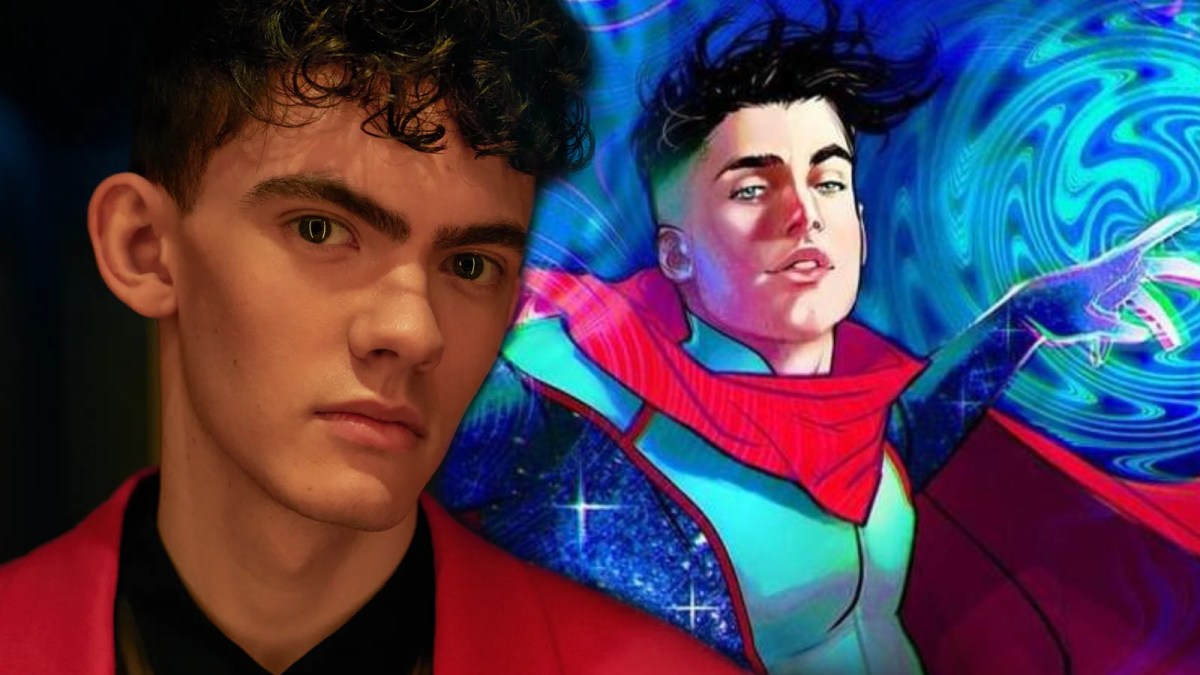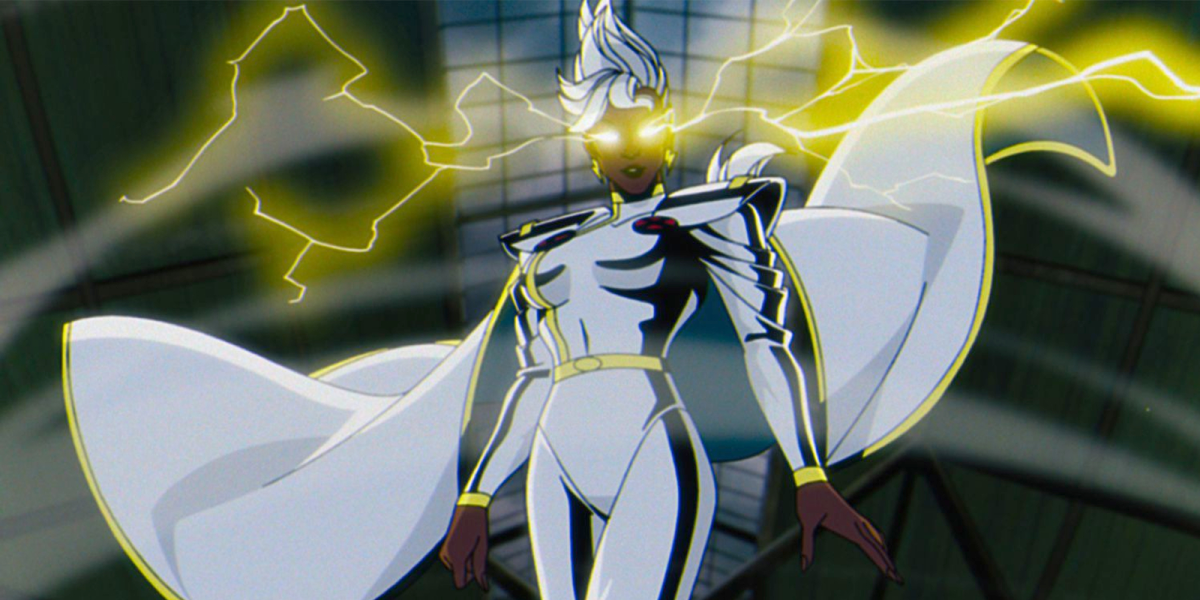We need to talk about the internet’s strange relationship with Christopher Nolan again, in light of a reported deal he made with Universal.
Details leaked of Nolan’s plans for his next movie. Nolan will reportedly direct a biography of J. Robert Oppenheimer, the scientist who spearheaded the Manhattan project, which created the atomic bomb. It’s an interesting choice because it feels very much like an extension of Tenet. Nolan’s recent time-warping action thriller was a movie about surviving “the detritus of a coming war” resulting from a discovery by a future “generation’s Oppenheimer.”
The internet’s reaction to this has been characteristic of its weird preoccupation with vilifying the director. After all, an easily falsifiable talk show anecdote from Anne Hathaway led to allegations of Nolan banning chairs from his sets. With the release of Tenet, Nolan was accused of spreading COVID by insisting that the film open in theaters, when in fact “the studio made the decision” to release in theaters, and the August release was the latest of the options provided by Warner Bros.
What’s interesting about the recent news is that Christopher Nolan has effectively broken with Warner Bros., reportedly landing at Universal instead. Warner Bros. has historically had a reputation for maintaining long-term relationships with its directors. This past weekend, the studio released Cry Macho, its 47th collaboration with director Clint Eastwood. It also worked hard to keep Stanley Kubrick happy, allowing him to make movies like Full Metal Jacket and Eyes Wide Shut in the United Kingdom rather than on location or in Hollywood.
Nolan has worked consistently with Warner Bros. since his third feature, Insomnia. Warner Bros. was so eager to continue working with Nolan that it traded portions of the Friday the 13th franchise and South Park to Paramount to take over the international rights for Interstellar. However, recent years have seen Warner Bros. retreating from that model, with reporting from July 2017 suggesting it no longer wanted to work with “auteur directors who want final cut.”

The final straw may have been the studio’s decision to dump this year’s theatrical slate on HBO Max, which Nolan – with uncharacteristic bluntness – described as “the worst streaming service.” Nolan was not alone in his criticism. Other directors like Denis Villeneuve and David Chase were similarly blunt. Perhaps coincidentally – perhaps not – Wonder Woman 1984 director Patty Jenkins literally roller-skated over to Disney in a hastily assembled promo for Star Wars: Rogue Squadron a week after the HBO Max announcement.
As happens when a director of Nolan’s stature departs a studio, there was a bidding war. It recently happened over Quentin Tarantino after the fall of Harvey Weinstein. Much of the reaction to Nolan’s rumored deal with Universal has focused on the director’s terms: a $100M budget and equivalent market spend, a 100-day release window, a six-week “blackout,” and 20% of first-dollar gross. There’s been pushback that Nolan is being unreasonable or unrealistic in setting these demands.
The most obvious point to make here is a simple one. Nobody forced Universal to accept these terms. If it didn’t think that this was a deal worth making, it would have not made the deal. It’s simple supply and demand. Christopher Nolan is a successful film director. Even the perceived box office disappointment Tenet outpaced most subsequent releases, despite their more favorable conditions. Tenet outgrossed Jungle Cruise, Mortal Kombat, Space Jam, The Suicide Squad, and more.
Universal wasn’t the only studio negotiating with Nolan. Sony and Apple were enthusiastic as well, which makes sense given their creative values. After all, Sony is now home to Quentin Tarantino, and Apple is in the Martin Scorsese business. These are major studios that are explicitly in the market for the artisanal blockbusters that Nolan creates. It seems churlish to resent either party for negotiating such a deal. Nobody’s getting hurt; everybody’s getting what they want.

Let’s discuss the particulars of the deal, because these seem to be rankling some observers. The biggest figure is the $100M budget for a biography of a scientist, which some observers consider to be a bit high. Even ignoring Roger Ebert’s classic observation that “it’s not what a movie is about, it’s how it is about it,” it’s worth noting that a $100M budget won’t actually get a movie that far these days – particularly if the film isn’t going to exploit a largely non-union VFX field.
$100M will pay for a midrange action movie like The Expendables 2 or The Expendables 3. It will pay for a good-looking genre piece that relies on either location work or a period setting. Blood Diamond and Green Zone were stripped down audience-friendly awards plays, not miles away from Nolan’s work on films like Insomnia or Dunkirk. Perhaps more to the point, auteur-driven period thrillers like Michael Mann’s Public Enemies or Ridley Scott’s American Gangster also clocked in at that budget.
The equivalent publicity spend is also basic Hollywood business. Nolan directs blockbusters. Even Nolan’s Dunkirk was a summer blockbuster, a war movie released in mid-July. The average publicity spend for a summer blockbuster was estimated to be at least $200M seven years ago. The figure sounds absurd out of context, but it’s just an example of Nolan getting a concrete number set down in print.
Similarly, some observers might balk at the director’s claim on 20% of first-dollar gross. This is actually quite customary for directors of Nolan’s stature. Tyler Perry reportedly gets 15%. Tarantino got 25% on Once Upon a Time… in Hollywood. Peter Jackson got 20% on King Kong. Tom Hanks and Steven Spielberg split 40% on Saving Private Ryan. It’s not just directors. Producer Jason Blum gets 12.5%. Arnold Schwarzenegger makes 25%. Sandra Bullock takes 20%. It’s how these deals are made.

Nolan also requested a three-week blackout either side of his project’s release, with Universal not releasing a major motion picture directly before or after his film. Again, this prompted a lot of outrage from people who don’t really pay attention to how movie distribution works. It makes sense for studios not to cannibalize their own releases, and these sorts of so-called “blackouts” are quite common. They just aren’t frequently cited to stir outrage online.
Just glancing at Universal’s pre-COVID release schedule will demonstrate that this is hardly unreasonable. In 2019, there was no Universal release between Us (March 22) and Little (April 12), nor between Little and The Hustle (May 10). In 2018, there was no Universal release between Insidious: The Last Key (January 5) and Fifty Shades Freed (February 9), nor between Fifty Shades Freed and I Am Losing Weight (March 8).
In 2017, there were long gaps – often more than three weeks – between releases like Get Out (February 24), Kikoriki: Legend of the Golden Dragon (March 17), The Fate of the Furious (April 14), The Mummy (June 9), and Despicable Me 3 (June 30). There was a similar run in 2016, between The Secret Life of Pets (July 8), Jason Bourne (July 29), Bridget Jones’s Baby (September 16), and The Girl on the Train (October 7). Nolan is not asking for any greater courtesy than that extended to those directors.
Similarly, some commenters balked at Christopher Nolan’s insistence on a rumored 100-day theatrical exclusive release window, particularly in the context of recent efforts to shorten that window. However, that’s about in line with pre-COVID windows, like the 102 days (December 15, 2017 to March 27, 2018) for Star Wars: The Last Jedi or the 95 days (December 21, 2018 to March 26, 2019) for Aquaman. It’s not an unreasonable demand. Notably, Jenkins’ Rogue Squadron will be released in theaters even as the Star Wars franchise pivots to streaming.

Whether individually or collectively, none of Nolan’s terms are particularly unusual, despite the upset that they appear to have caused in some corners of the internet. Some of the frustration with the director might derive from the presumed arrogance of having to articulate these demands, rather than simply accepting whatever terms the studios lay down. There seems to be some resentment of the fact that Nolan has enough power to secure these basic terms.
Unfortunately, it’s necessary to articulate these terms. There’s a story about The Witches of Eastwick, the only movie that director George Miller made entirely within the Hollywood studio system. With the budget tight, Miller graciously surrendered some of the contractual obligations afforded directors, hoping the money could be reinvested on screen. The executives at Warner Bros. read this as a sign of weakness and made the production a nightmare for the Australian filmmaker.
As such, contractual protections like these are necessary for filmmakers working in Hollywood, particularly those with a distinctly individualist style and aesthetic. In December 2020, a bunch of directors woke up to discover that their films were to be released day-and-date on HBO Max without any prior consultation or warning. Nolan’s agreement, like that signed with Tarantino at Sony, is designed to reassure the director that his work will be valued and protected.
Taste is obviously subjective. Some people like Christopher Nolan movies, and others don’t. Mileage varies. Doctors differ. Clichés abound. However one might feel about Nolan’s films, it’s strange to get outraged about this deal negotiated between a major studio and one of the few remaining directors capable of turning an original idea into a hit. After all, it’s one film from one director every few years at most. Maybe it’s worth protecting.





